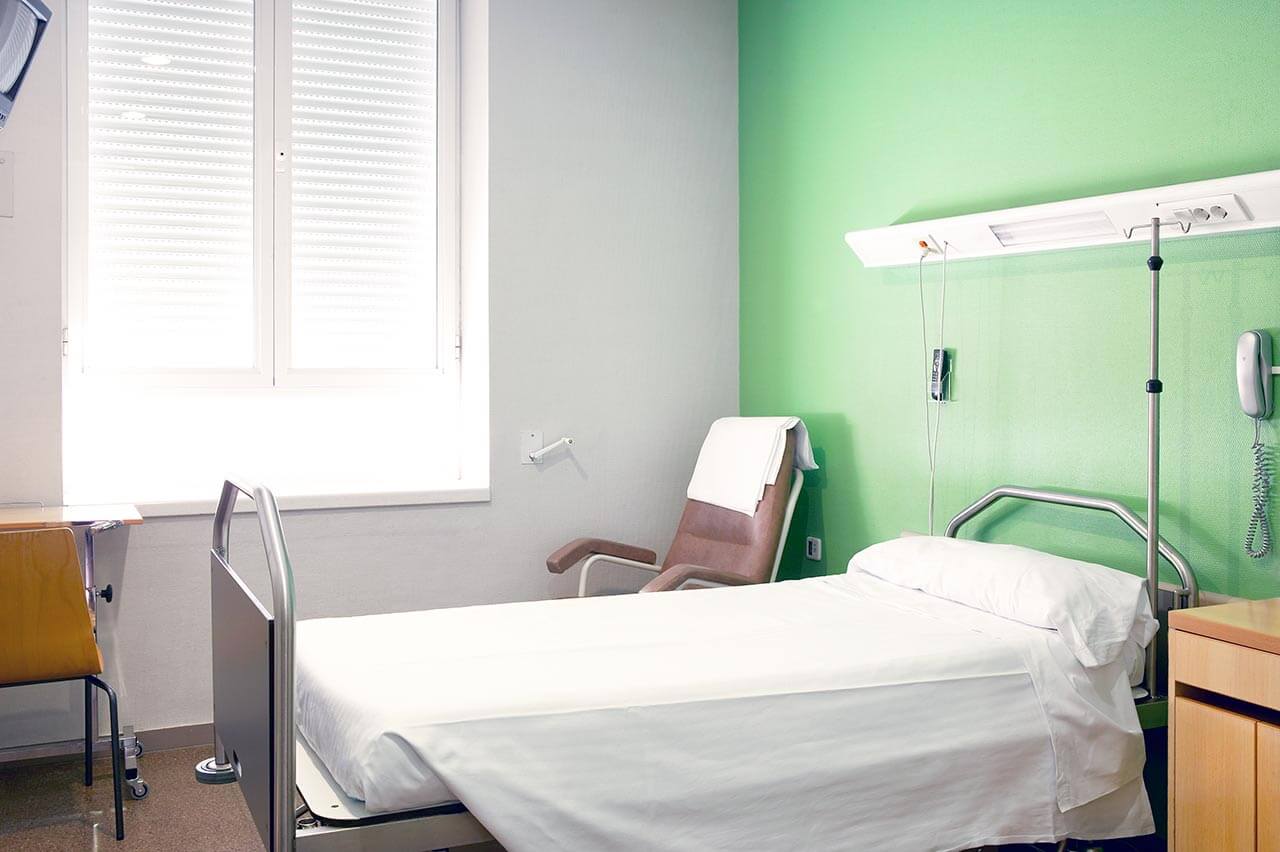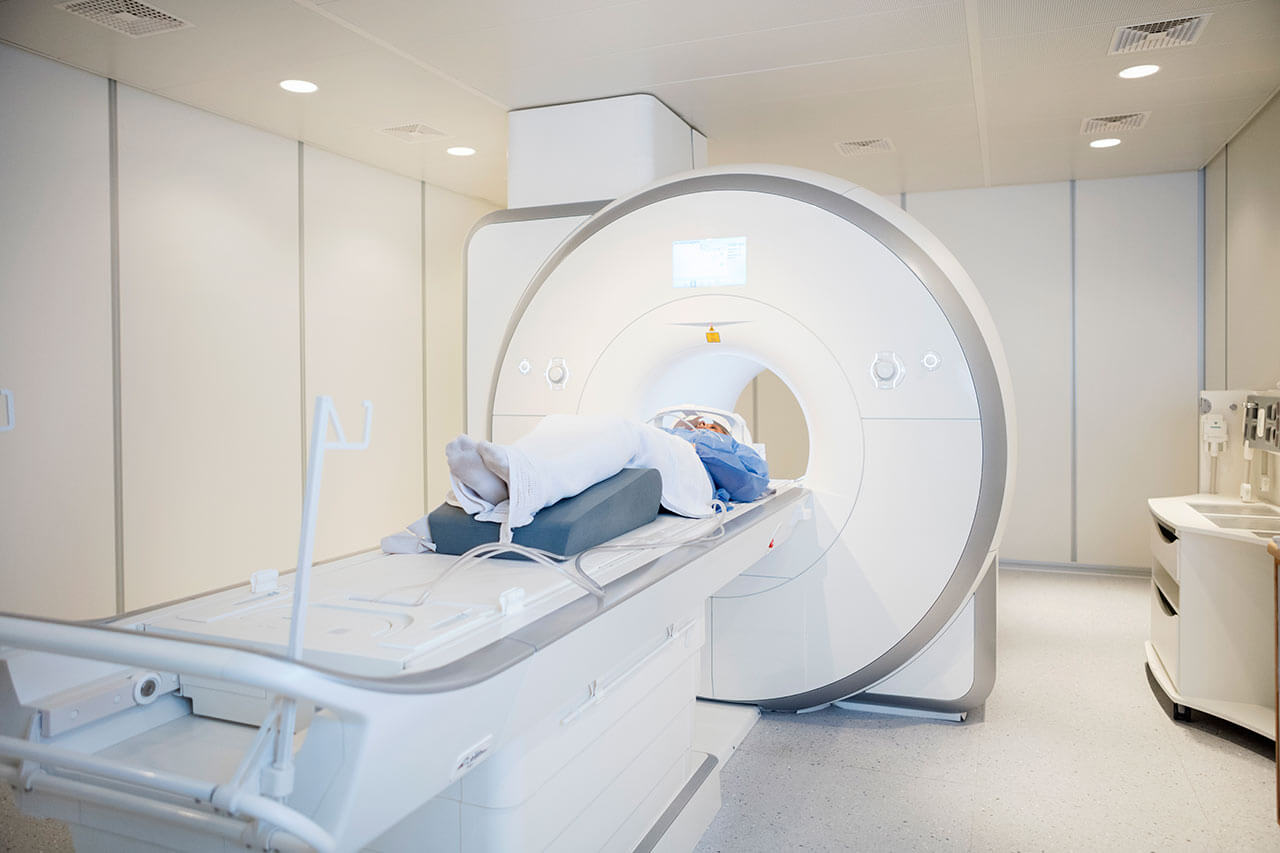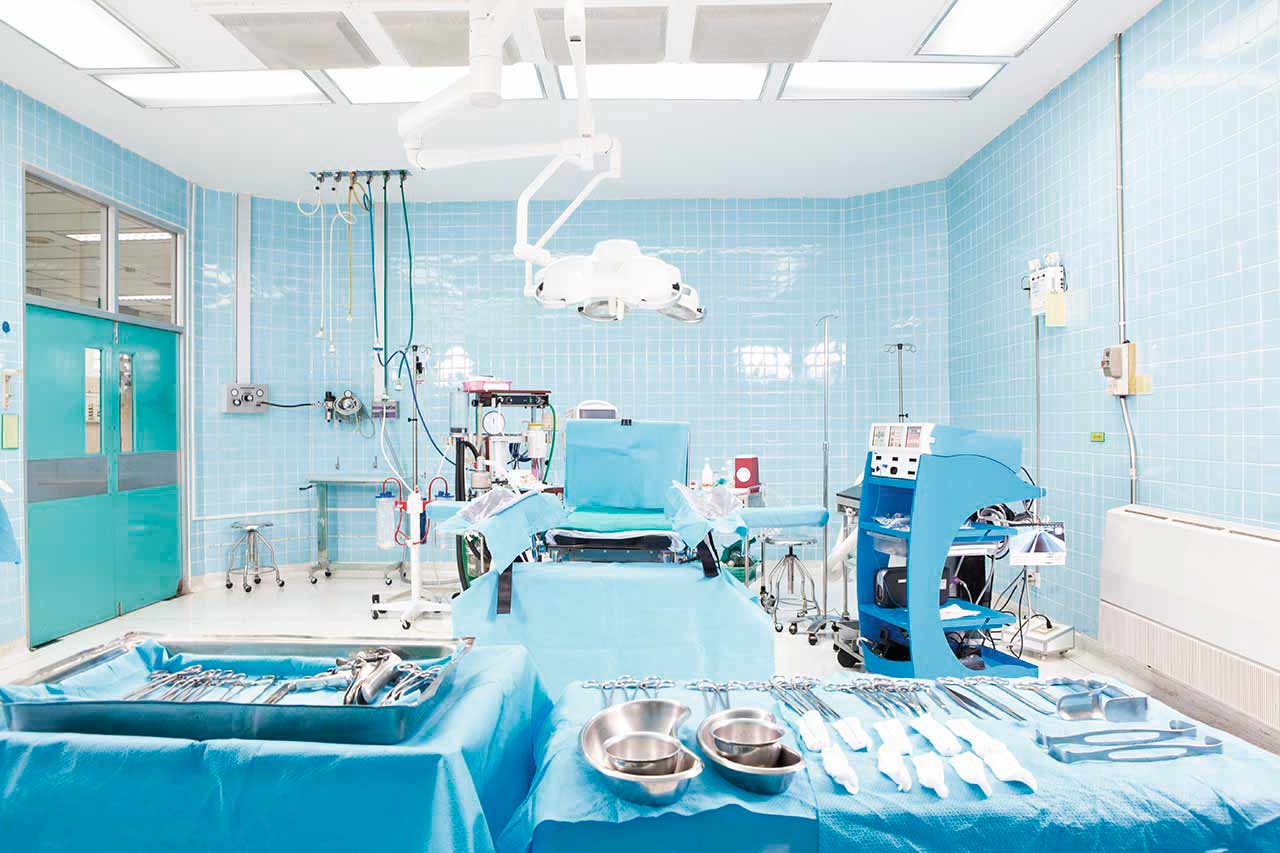
The program includes:
- Initial presentation in the clinic
- clinical history taking
- review of medical records
- physical examination
- laboratory tests:
- complete blood count
- general urine analysis
- biochemical analysis of blood
- inflammation indicators (CRP, ESR)
- indicators blood coagulation
- anti-nuclear antibody
- cyclic citrullinated peptide (CCP)
- rheumatoid factor (RF)
- MRI/x-ray scan
- differential diagnosis of other diseases of the joints
- nursing services
- consultation of related specialists
- explanation of individual treatment plan
Required documents
- Medical records
Service
You may also book:
 BookingHealth Price from:
BookingHealth Price from:
About the department
The Department of Pediatric and Adolescent Medicine at the University Hospital of Ludwig Maximilian University of Munich offers the full range of diagnostics and treatment for various diseases in newborns, children, and adolescents. The priority focuses of the department's clinical activities include the treatment of diseases of the respiratory system, endocrine glands, infectious diseases, diseases of the digestive system, liver, kidneys, and rheumatic pathologies. The department's doctors have excellent qualifications and easily cope with even the most complex clinical cases. The specialists use modern diagnostic methods in their work to make an accurate diagnosis and effective conservative treatment methods. Pediatricians work in collaboration with pediatric surgeons, and therefore if a child needs surgery, he will receive medical care as soon as possible. About 50,000 young patients receive medical care both on an inpatient and outpatient basis in the department every year. The medical facility has a friendly and pleasant atmosphere in which children feel as comfortable as possible. The department is headed by Prof. Dr. med. Christoph Klein.
A large number of patients who come to the department are children with gastrointestinal diseases such as gastritis, gastroenteritis, peptic ulcer, constipation, diarrhea, chronic cholecystitis, pancreatitis, and others. Pediatric gastroenterologists have excellent diagnostic options to detect the causes of gastrointestinal disorders. The specialists carry out laboratory tests, ultrasound scans, and functional diagnostics. With appropriate indications, young patients undergo endoscopic diagnostics, including colonoscopy, esophagogastroduodenoscopy, ileocolonoscopy, and video capsule endoscopy. Based on the results of comprehensive diagnostics, a child is prescribed an optimal treatment regimen. In most cases, doctors prescribe only modern drugs. The specialists also successfully perform endoscopic therapeutic procedures, such as vascular ligation and other types of hemostasis, or dilation to eliminate stenoses.
The department's pediatric endocrinologists treat hormonal imbalances caused by diseases of the pituitary gland, thyroid gland, adrenal glands, and gonads. Of particular interest is the provision of medical care to children with growth disorders (short stature and gigantism) and congenital metabolic disorders (phenylketonuria, galactosemia, maple syrup urine disease, MCAD deficiency, and LCHAD deficiency). Laboratory tests are usually sufficient to detect hormonal imbalances. As for treatment, it is mostly based on the correction of hormonal levels with the help of medications. In most cases, children undergo their treatment on an outpatient basis.
The department admits young patients with infectious diseases and their complications. Doctors have vast experience in providing medical care to children with tuberculosis, pneumonia, sepsis, urinary tract infections, fever syndromes, HIV, and others. Depending on the specific clinical case, young patients are prescribed antibiotics, antiviral drugs, interferon drugs, immunomodulators, antipyretic drugs, etc.
The department's therapeutic offer is complemented by the diagnostics and treatment of respiratory diseases in children. The team of the department's pediatric pulmonologists successfully cures patients with cystic fibrosis, interstitial lung disease, primary ciliary dyskinesia, chronic obstructive pulmonary disease, and bronchopulmonary dysplasia. The diagnostic stage involves laboratory tests, X-ray scans, lung diffusion capacity measurement, lung clearance index test, stress tests, spirometry, bronchoscopy, bronchoalveolar lavage, transbronchial biopsy, and other examinations. When the diagnosis is confirmed, an attending physician proceeds to develop a treatment regimen. A child receives only drug therapy whenever possible, and in complex cases, the specialists perform bronchoscopic interventional procedures.
The department's main clinical activities are as follows:
- Diagnostics and treatment of allergic reactions and bronchial asthma
- Diagnostics and treatment of congenital metabolic disorders
- Diagnostics and treatment of congenital malformations of the lungs and respiratory tract
- Diagnostics and treatment of muscle dysmorphia, skeletal diseases, and growth disorders
- Diagnostics and treatment of endocrine disorders, including diabetes mellitus
- Diagnostics and treatment of gastrointestinal diseases
- Diagnostics and treatment of liver and bile duct diseases
- Diagnostics and treatment of blood clotting disorders (hemophilia)
- Diagnostics and treatment of immunodeficiencies
- Diagnostics and treatment of infectious diseases
- Diagnostics and treatment of diseases of the lungs and respiratory tract
- Diagnostics and treatment of kidney diseases
- Diagnostics and treatment of rheumatic diseases
- Diagnostics and treatment of oncological diseases
- Diagnostics and treatment of hematological diseases
- Diagnostics and treatment of chromosomal abnormalities
- Diagnostics and treatment of rare pathologies in premature and newborn babies
- Patient care before and after kidney and lung transplants
- Other medical services
The department's range of therapeutic services includes the following options:
- Drug therapy: pills, injections, and infusions
- Allergen-specific immunotherapy (hyposensitization) for allergies
- Inhalation therapy for bronchial asthma
- Hormone replacement therapy for hormonal imbalances
- Endoscopic interventional procedures: homeostasis, ligation, dilation, bronchoscopy, bronchoalveolar lavage, and others
- Renal replacement therapy (dialysis) for chronic kidney failure
- Chemotherapy for leukemia, Hodgkin's lymphoma, and brain tumors
- Bone marrow transplant for malignant diseases (focus on blood cancer)
- Other treatment methods
Curriculum vitae
Higher Education and Professional Career
- 1983 - 1987 Medical studies, University of Ulm.
- 1987 - 1988 Medical studies, Harvard University, Boston, USA.
- 1988 - 1990 Medical studies, Ludwig Maximilian University of Munich.
- 1991 Intern, Department of Pediatric and Adolescent Medicine at the University Hospital of Ludwig Maximilian University of Munich.
- 1991 - 1994 Residency, Department of Immunology and Hematology, Hôpital Necker Enfants Malades, Paris.
- 1994 - 1995 Assistant Physician, University Hospital Freiburg.
- 1995 - 1998 Clinical Fellow, Department of Pediatric Hematology and Oncology, Children's Hospital, Harvard University, Boston, USA.
- 1998 - 2000 Lecturer, Pediatrics, Harvard University, Boston, USA.
- 2000 - 2008 Senior Physician, Department of Pediatric Hematology and Oncology, Hannover Medical School.
- 2001 Head of the Clinical Research Group "Stem Cell Transplantation and Immunomodulation – Development of New Cellular and Molecular Therapeutic Manipulations in Pediatrics" (DFG KFO110).
- 2008 - 2011 Head of the Department of Pediatric Hematology and Oncology, Hannover Medical School.
- Since 2011 Head of the Department of Pediatric and Adolescent Medicine at the University Hospital of Ludwig Maximilian University of Munich.
Prizes, Awards and Distinctions
- 2016 Khwarizmi International Award, Islamic Republic Iran.
- 2015 Cusanus Prize.
- 2014 Honorary Associate Professor, University of Isfahan.
- 2014 Hector Research Prize.
- 2011 William Dameshek Prize, American Society of Hematology.
- 2011 Paul Martini Award.
- 2011 Eva Luise Köhler Award for Research on Rare Diseases.
- 2010 Gottfried Wilhelm Leibniz Award, German Research Foundation.
- 2007 Adalbert Czerny Prize, German Society of Pediatrics.
- 2007 Rudolf Schön Prize, Hannover Medical School.
- 2007 GlaxoSmithKline Prize for Clinical Research.
- 2006 Kind Philipp Prize, German Society of Pediatric Hematology.
- 2006 Yamagiwa Yoshida Memorial Award, Japan.
- 1997 American Society of Hematology Scholar Award.
Photo of the doctor: (c) LMU Klinikum
About hospital
According to the Focus magazine, the University Hospital of Ludwig Maximilian University of Munich is regularly ranked among the best medical institutions in Germany!
The hospital is the largest multidisciplinary medical facility, as well as a leading research and training center in Germany and Europe. The hospital is proud of its bicentenary history and tirelessly confirms its primacy at the national and international levels. The outstanding quality of medical care is complemented by highly productive research activities, thanks to which many effective diagnostic and therapeutic methods, saving people’s lives, have been presented in medical practice.
The medical facility includes two main buildings, Grosshadern and Innenstadt. The hospital has 29 specialized departments, 53 interdisciplinary centers, 11 institutes, and many sections. More than 500,000 patients are treated here every year, which indicates the hospital's excellent reputation. A large and highly professional medical team, consisting of 1,800 doctors and 3,300 nursing staff, works for the benefit of patients. The hospital has 2,000 beds to accommodate patients.
The hospital's infrastructure deserves special attention: advanced diagnostic equipment that allows doctors to detect the slightest pathological changes in the human body, the latest operating rooms with highly efficient monitoring systems, robot-assisted surgical systems that facilitate sparing operations, and proper postoperative care.
Excellent technical resources and highly professional medical staff are undoubtedly the hospital's pride, but the medical facility also pays attention to the patient's comfort and to a humane attitude toward their life situation. When providing the necessary medical care, doctors and nursing staff always show a friendly attitude, inform patients in detail about the upcoming diagnostic and therapeutic procedures, gladly answer all questions of interest to patients, and provide moral support during the therapeutic process.
The hospital has many prestigious quality certificates, including a DIN EN ISO 9001 certificate, an IQM certificate, an endoCert certificate, certificates from the German Cancer Society (DKG) for treating various types of cancer, the German Cardiac Society (DGK), the German Society for Orthopedics and Trauma Surgery (DGOU), etc. Thus, patients can count on the best possible treatment outcome due to the use of the most effective and, at the same time, sparing therapeutic techniques.
Photo: (с) depositphotos
Accommodation in hospital
Patients rooms
The patients of the University Hospital of Ludwig Maximilian University of Munich live in comfortable, spacious, single and double patient rooms with a modern design. Each room is equipped with an ensuite bathroom with a shower and toilet. The furnishing of a standard patient room includes a comfortable bed, the position of which can be adjusted using the remote control, a locker for storing personal belongings, a TV, and a telephone. Also, if desired, you can connect to the Internet. In addition, patients can opt for enhanced-comfort rooms, with a safe, a fridge, and upholstered furniture.
The hospital has an excellent infrastructure. The medical facility’s area houses a bank, ATMs, a hairdresser, shops with a wide range of food, drinks, newspapers, magazines, and personal hygiene items, play areas for children, and a beautiful garden for walking, etc.
Meals and Menus
The patient and his accompanying person are offered a daily choice of three menus, including a vegetarian one. If you are on a specific diet for any reason, you will be offered an individual menu. Please inform the medical staff about your dietary preferences prior to the treatment.
Further details
Standard rooms include:
Religion
Religious services are available upon request.
Accompanying person
Your accompanying person may stay with you in your room or at a hotel of your choice during the fixed program.
Hotel
You may stay at a hotel of your choice during an outpatient program. Our managers will help you to choose the best option.
The hospital offers a full range of laboratory tests (general, hormonal, tests for infections, antibodies, tumor markers, etc.), genetic tests, various modifications of ultrasound scans, CT scans, MRI and PET/CT, angiography, myelography, biopsies, and other examinations. Treatment with medications, endoscopic and robotic operations, and stereotaxic interventions are carried out here, modern types of radiation therapy are also used. The hospital offers patients all the necessary therapeutic techniques.
- Allogeneic bone marrow transplantation
- Microsurgical transplantation of head and neck tissues
- Microsurgical resection of brain tumors with intraoperative fluorescence
- Minimally invasive treatment of spine pathologies
- Joint replacement with postoperative rehabilitation (fast track program)
Patients with benign and malignant neoplasms of various localizations, pathologies of arteries and veins, herniated discs, osteoporosis, congenital and acquired pathologies of the musculoskeletal system, benign and malignant pathologies of the mammary gland, and other pathologies.
Which specialties of the University Hospital of Ludwig Maximilian University of Munich are the best?
- Interventional and diagnostic neuroradiology
- Vascular surgery
- Cardiac surgery
- Mammalogy
- Gastroenterology and hepatology
Over 1,700 highly qualified doctors work at the hospital.





